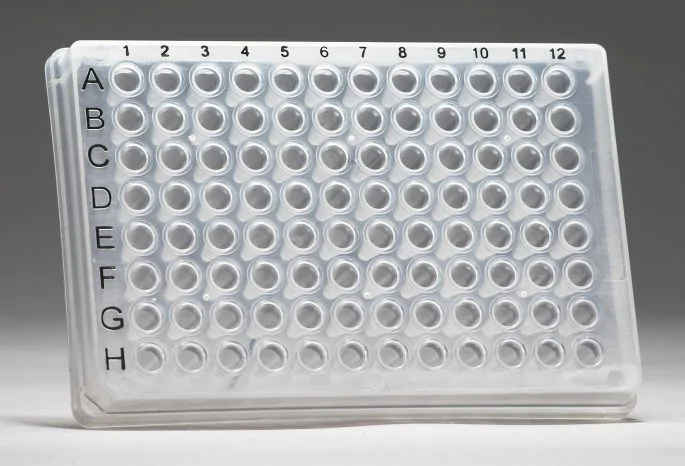ScienCell's GeneQuery™ Human Complications of Diabetes qPCR Array (GQH-DBC) contains primers for 88 genes commonly misregulated in diabetic complications. Diabetes increases the risk of developing a number of long-term complications that arise gradually. Such complications include but are not limited to retinopathy, angiopathy, nephropathy, macular edema, ketoacidosis, and neuropathy. Brief examples of how included genes may be grouped according to complication are shown below:
- Retinopathy: - AKR1B1, ANGPT2, HFE, NAGPA, VEGFA
- Neuropathy: - SOD2, SYNM, TRPV1, GDNF, DBH, ACE
- Macular edema: - CCL2, EPO, ICAM1, IL6, REN
- Nephropathy: - TGFB1, NAGLU, IL1RN, CTGF, AGT
- Ischemic stroke: - MTHFR, PLAT, PTGIS, F2, APOH
GeneQuery™ qPCR array kits are qPCR ready in a 96-well plate format, with each well containing one primer set that recognizes and efficiently amplifies a specific target gene's cDNA. The carefully designed primers ensure that: (i) the optimal annealing temperature in qPCR analysis is 65°C (with 2 mM Mg^2+ and no DMSO); (ii) the primer set recognizes all known transcript variants of the target gene, unless otherwise noted; and (iii) only one gene is amplified. Each primer set has been validated by qPCR with melt curve analysis and gel electrophoresis.
The carefully designed primers ensure that:
(i) the optimal annealing temperature in qPCR analysis is 65°C (with 2 mM Mg2+ and no DMSO); (ii) the primer set recognizes all known transcript variants of the target gene, unless otherwise noted; and (iii) only one gene is amplified.



